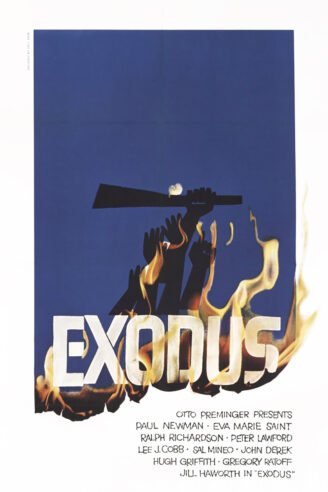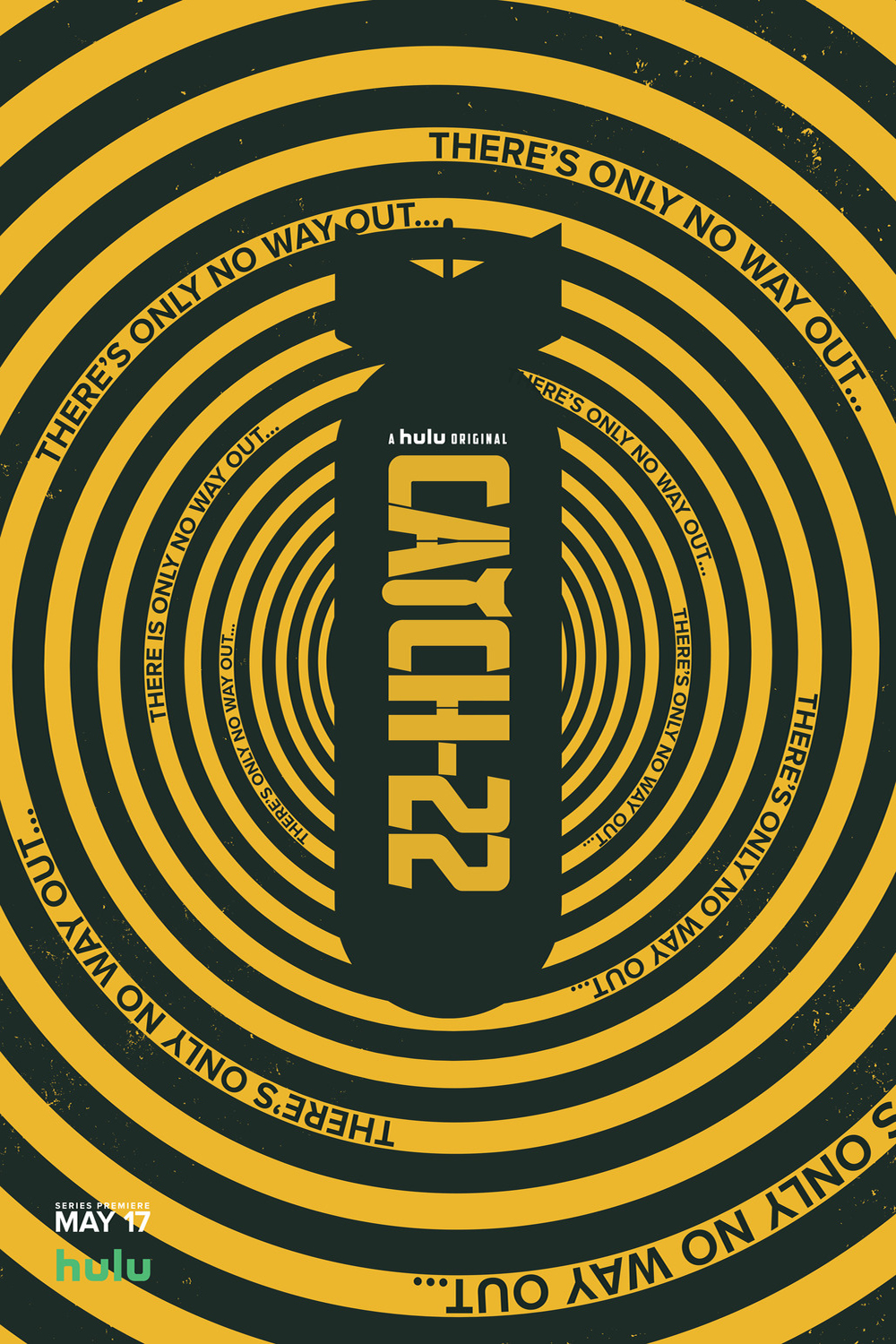They don’t make movies like Otto Preminger’s Exodus anymore. It’s one of those epic historical dramas with bombastic soundtracks that make me regret being born in a time when only Star Wars has such scores. (Listen here.)
It runs in the ballpark of three and a half hours, so it’s by no means an easy watch. Making it even less easy is the controversial subject matter: the founding of the modern state of Israel.
As a story, the film works magnificently. It earns its behemoth runtime. No scene is wasted, and the story naturally takes that time. It feels properly epic; about a people who have survived the unspeakable and their odyssey to find a new home.
Exodus starts on Cyprus, in a British-run refugee camp for Jews hoping to reach the Mandate of Palestine. Israel is portrayed as something desperately needed when the alternative was Auschwitz, and that urgency pervades the film in a captivating way. Many of the characters survived the Nazi death camps. Their steel-jawed determination to ensure nothing like the Holocaust can ever happen again is a driving metaphor for much of the plot.
We see many different locations, starting in the lush isle of Cyprus, then moving to the vibrant city of Jerusalem and finally a kibbutz in the Jezreel Valley, where everything goes to hell. There is a fantastic prison break scene in the middle and a dive into the political tensions within and without the Yishuv (the Jews living in Palestine prior to 1948).
The Mandate of Palestine in the late 1940s was a powder keg, and you can sense that everything is going to go south very soon. Those familiar with the history of the period will find several things that match the historical record. I was only minutes off from correctly predicting the bombing of a certain building, for one.
I must give some more time to the score. Ernest Gold’s triumphant soundtrack pervades the entire film, reaching the heights of Is Paris Burning? (1966) in terms of its grandeur. You can feel the anguish of a people who have stood on the brink of extinction and the brimming hope that they might have a homeland. It reminded me strongly of one of the two emotional currents that permeate Larry Collins and Dominique LaPierre’s O Jerusalem! (1971) — the joy of a people who can finally feel safe.
One of the recurring musical motifs of the film is Hatikvah, the Zionist song that became the anthem of the State of Israel. It is a song that speaks of a Jewish longing for a homeland, and that is where the film meets its major historical stumbling block: it is primarily, albeit not entirely, about Jewish characters. There is only one named Arab character in a film about an event that shattered the lives of so many Arabs.
General William Sherman said, “War is cruelty and you cannot refine it.” That holds true for this war that birthed a nation. The Jewish people did come from Eretz Yisrael, but they were never the only ones who lived there. Some of the militias that became the Israeli Defense Forces engaged in what would later be dubbed an ethnic cleansing of the Arab population. Palestinian Arabs refer to the 1948 expulsion from Israel as the Nakba: the catastrophe.
(The film uses the term “Palestinian” to refer to Arabs as well as Jews. The use of that phrase to specifically mean the Arabs of the land between the Jordan and the Mediterranean developed later.)
There is an acknowledgement of the awful fate of the Palestinian Arabs in one regard: in the form of the character of Taha, portrayed, problematically but with great pathos, by John Derek. He is the mukhtar of an Arab village near a kibbutz that is the setting for much of the final third of the film. Before the war, the two towns had amicable relations. But as the crowds sing Hatikvah at the announcement of the United Nations Partition Plan, Taha despairs. His people have been made a minority by another people who had come to escape being a minority, and this brutal irony is recognized.
Indeed, it is in this sense that Exodus succeeds: as a vivid portrayal of why the people who founded modern Israel did what they did. It shows you with great emotional resonance the battered jubilation of those who became the first Israelis.
It is with this in mind that one should watch the film. That joy is a beautiful melody, but its Arab countermelody is neglected. By all means listen to the symphony, but pay attention to what you don’t hear as much as to what you do.





